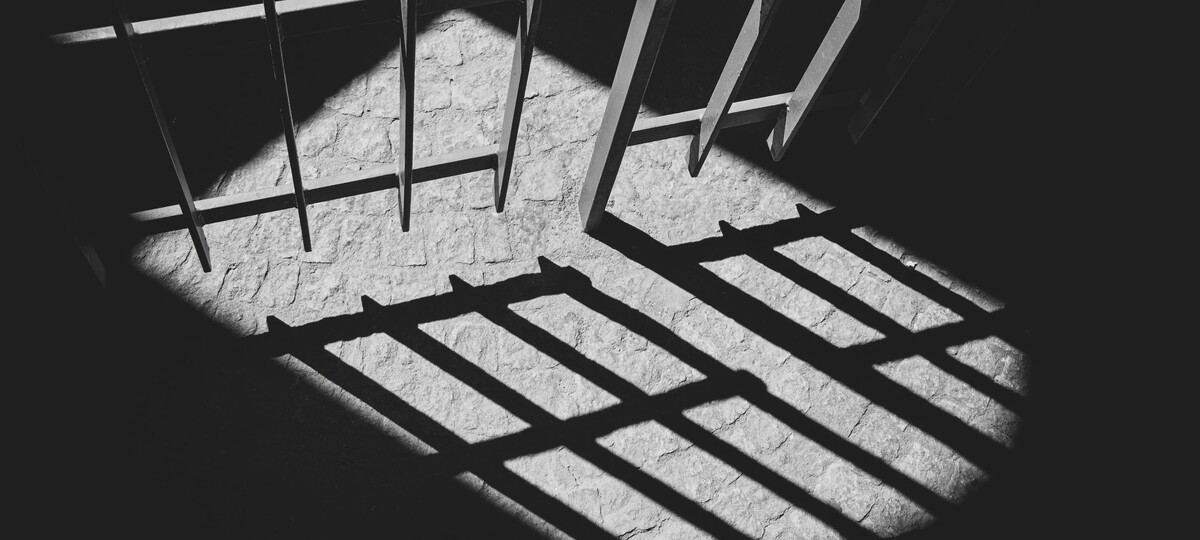
A fundamental tenet of Anglo-American jurisprudence, dating back to the Magna Carta, is that all those accused of a crime are presumed innocent until proven guilty. Today, about four out of five people sitting in local county jails and municipal lockups have not been convicted of the crime that brought about their detention.
Every day across the country, thousands of people are locked up because they don't have money. The idea of "debtors' prison" has long been repugnant. However, the concept of "pay or go to jail" is still around. Whether it's getting locked up for not paying fines or penalties after a conviction, or not having the wherewithal to post bail pending trial — there are still a lot of poor people in jail.
In most jurisdictions, the difference between being charged with a crime and walking the street pending trial, or sitting in jail awaiting trial, comes down to cash. Those who have it stay out of jail; those who don't, stay in jail. Those unfortunate people without money for bail are at risk of losing their jobs, their homes and their families.
Every year, about 11 million people funnel through local municipal and county jails. According to the Prison Policy Initiative, between 1970 and 2017, the number of people incarcerated in the nation's 3,000-plus local jails ballooned — from 150,000 to about 720,000 per day.
The millions of people who go to jail each year are there, generally, for brief periods of time. Most are released in days or hours after their arrest, while others are held for months or even years — often because they can't afford to make bail, are unable to get a speedy trial, or can't gain timely access to a public defender.
Defendants accused of particularly serious violent crimes or who pose a credible threat to public safety may be detained in jail while awaiting trial. However, most defendants are entitled to pretrial release. Judges may impose conditions on a defendant's release, such as electronic monitoring or supervision through a pretrial services agency, but they are entitled to bail if they can afford it.
Correcting the bail crisis is not out of reach. This isn't about being tough on crime. It's about being fair. For some, even a nominal bond is out of reach. When an accused has no money, $1,500 might as well be $150,000.
Cash bail was historically intended to provide a financial incentive for defendants to show up at required court dates, but reforms adopted in the 1970s and 1980s allowed judges to also consider potential risks to public safety when making bail decisions. Cash bail can, under the right circumstances, be an appropriate tool for ensuring defendants cooperate throughout the pretrial period.
However, in most instances, cash bail creates a wealth-based, two-tiered system of pretrial detention. Those who can't afford bail suffer a "poverty penalty." No system of justice can endure when a person's wealth, or lack of it, can determine their freedom. Mariam Krinsky, executive director of the nonprofit Fair and Just Prosecution, said in 2019, "Common sense dictates that people should not be held in jail simply because they cannot afford a monetary payment." Yet the widespread use of cash bail continues.
Keeping an accused in jail for an extended period of time without trial creates other grievous problems in the criminal justice system. For instance, some inmates being detained pretrial, without the resources to post bail, see a guilty plea as their only path to freedom. Some defendants sitting in jail will take a plea offer, even if they're innocent, just to get out of jail. What could be worse than being locked up because you can't afford bail?
Pleading guilty to a crime you didn't commit to regain your freedom.
Comment by clicking here.
Matthew T. Mangino is of counsel with Luxenberg, Garbett, Kelly & George P.C. His book "The Executioner's Toll, 2010" was released by McFarland Publishing.
Previously:
• 03/19/24: Stand Your Ground Rears Its Head, Again
• 02/27/24: SCOTUS Not Inclined to Remove Trump From Ballot
• 02/27/24: A Parent Convicted for the Conduct of a Child
• 02/09/24: Forensic Evidence: Not What It Used to Be
• 01/22/24: Doing Time Without Committing a Crime


 Contact The Editor
Contact The Editor
 Articles By This Author
Articles By This Author